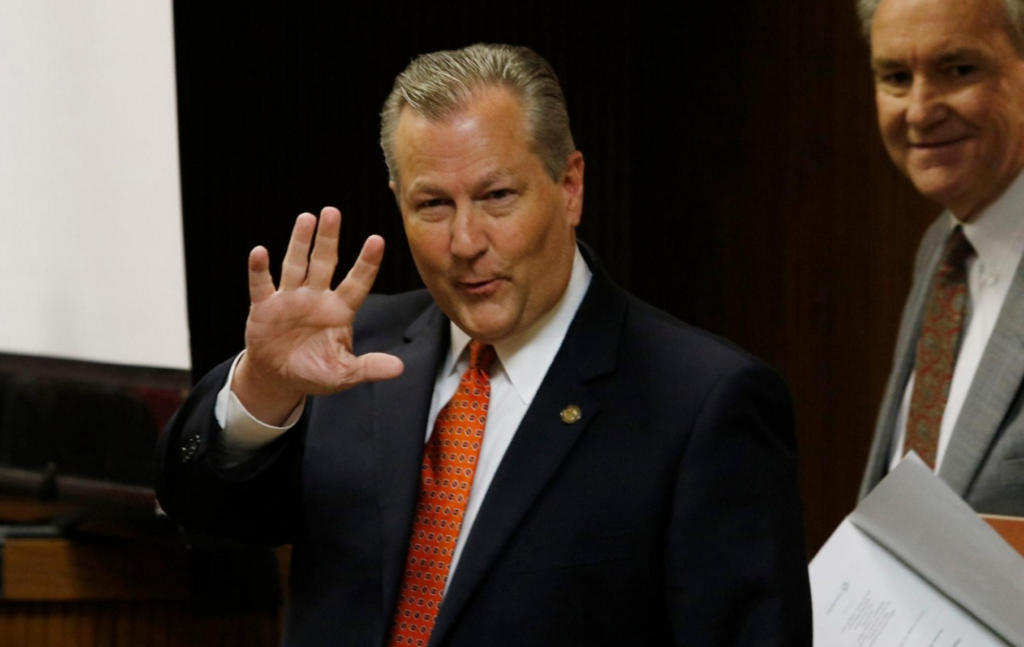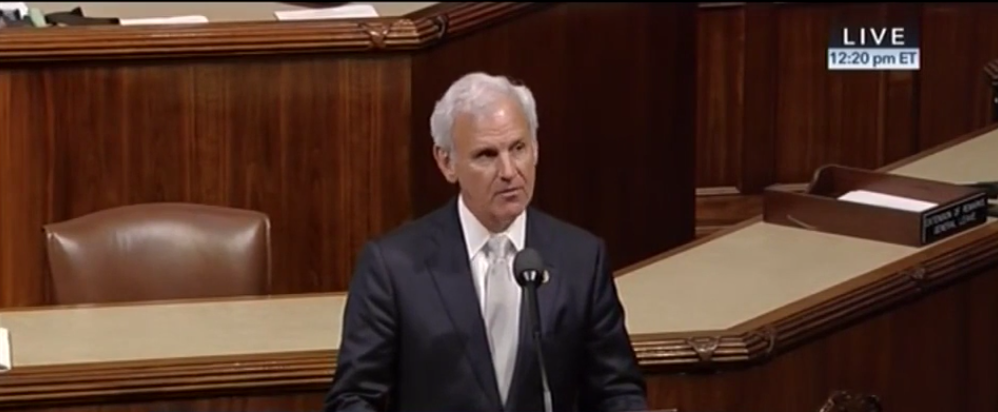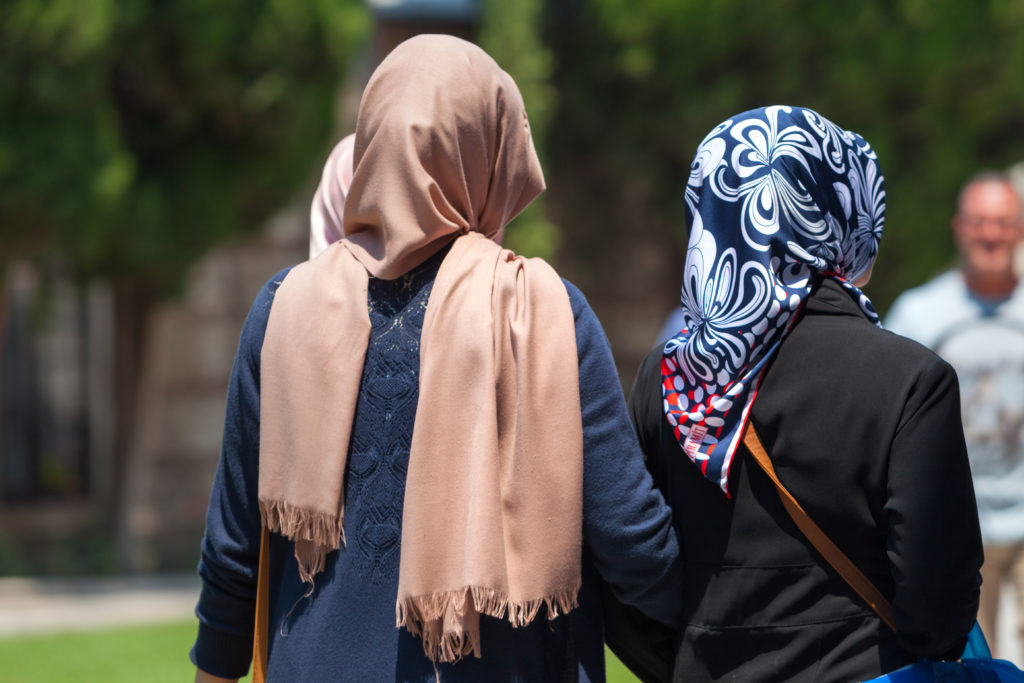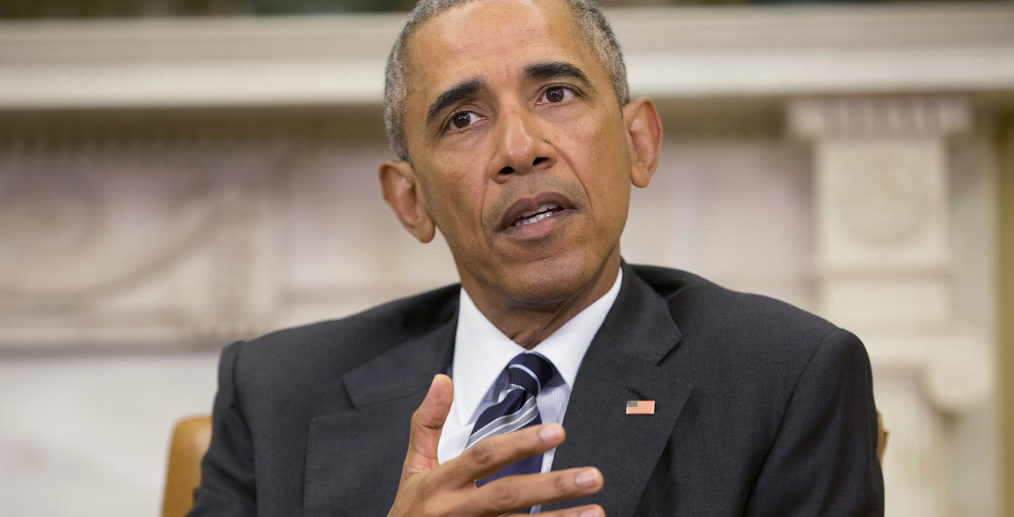Mike Hubbard’s marred legacy reflected in petition to scrub name from street

Just days after disgraced House Speaker Mike Hubbard received the wound of his political life by way of 12 convictions for public corruption, some Alabama activists are trying apply some salt. A new petition has emerged on MoveOn.org to remove his name from a street in Opelika currently called “Mike Hubbard Boulevard” and rename it “Cam Newton Run,” in a nod to one of Auburn University’s most famous alums, star NFL quarterback Cam Newton. The street runs from the intersection of Glenn Avenue and Bent Creek Road near exit 57, which leads to Auburn University Regional Airport, where thousands of students, alums, and parents travel each year to attend school or athletic events. “Let’s capture the Auburn spirit while depoliticizing an expected rename,” reads the petition’s headline, posted by a user known simply as Auburn Alum. “With exit 57 serving as a prominent gateway to Auburn fans, prospective students, opponents and the like, ‘Cam Newton Run’ recognizes one of Auburn’s most famous graduates and athletes who has served as a prominent and effective ambassador for Auburn both on and off the field. This rename also serves as a way to depoliticize what may be considered by many in this community to be a painful yet imminent name change,” the appeal reads. “WDE and thanks for the support,” the petition concludes, referring to the school’s unofficial war chant, “War Damn Eagle.” At press time, the petition had gathered nearly 900 signatures in just two days. It has a goal of 1,000 signatures. If successful, the petition will be delivered to Auburn Mayor Bill Ham. Then there’s the Mike Hubbard Center for Advanced Science, Innovation and Commerce at Auburn’s main campus, which houses researchers across six scientific disciplines and is a major landmark on campus. School officials there may also consider name changes. “Naming of campus facilities is a multi-step process that ends with a decision by the Auburn Board (of Trustees),” Auburn University director of public affairs Brian Keeter told AL.com. “Auburn will consider all information and make a determination at the appropriate time.” The idea of renaming the street after Newton has picked up significant traction from fans of the Carolina Panthers, Newton’s home in the NFL. The potential plans to scrub Hubbard from the public consciousness of Alabama continues the precipitous decline and fall for the longtime lawmaker. In just a year’s time, Hubbard has gone from the pinnacle of power in both the Alabama statehouse and the state Republican Party to a reviled figure in many circles, even among his own partisans. Hubbard said late last week he is still “in shock” over the dozen convictions he was slapped with over attempting to sell political influence and enrich himself and his allies using the levers of state government, and says he intends to appeal.
Bradley Byrne: There is a better way to fight poverty

Last week, I sat in the basement of an apartment complex in the poverty-ridden Anacostia community of Washington, D.C., listening to Bishop Shirley Holloway tell a story that I wish every American could hear. Bishop Holloway runs a program known as House of Help City of Hope, which helps people stuck in poverty with a special focus on those who struggle with addiction. The success stories are amazing. I heard from former drug addicts and alcoholics who had reached such low points that they didn’t want to live any longer. Once they got into Bishop Holloway’s faith-based program, they turned their lives completely around. I think the federal government can learn a lot from Bishop Holloway’s program. She doesn’t rely on large government programs, but instead she depends on faith, hard work, and love. You see, poverty is a serious issue all across the country, including right here in Southwest Alabama. We have both rural and urban poverty throughout our area. The poverty rate in Monroe County is almost 30%, while the poverty rate in Mobile County sits right around 20%. Nationally, Alabama’s poverty rate is sixth worst in the country. It is clear that our nation’s current poverty programs are not working. Just look at the numbers. We have spent around $22 trillion dollars since the “war on poverty” started in the 1960s, yet the poverty rate has hardly changed at all. The problem is that we treat poverty like a chronic disease that cannot be cured. We spend all our time trying to help people cope with poverty instead of guiding them out of poverty and toward a better life. The programs are failing the very people they were supposed to help, and we can do better. After meeting with Bishop Holloway, I joined some of my House colleagues in announcing a “Better Way” agenda to fight poverty. Our agenda attempts to get at the heart of what causes poverty and offers policy solutions to help lift people out of poverty. Our plan builds off of programs like that of Bishop Holloway by ensuring that we are tailoring benefits to meet the needs of people. A top-down, one-size-fits-all system of poverty-fighting programs clearly does not work. We need to encourage innovation and flexibility. Most importantly, the agenda puts a real focus on work. If you are capable, we should expect you to work or prepare for work. There must be some sort of accountability system for those who simply refuse to look for work. Now, I understand that a big issue is people may lack the skills needed to find a job, so our agenda emphasizes improving our job training programs. From my time as chancellor of Alabama’s two-year college system, I have seen the miracles that can be worked through our community colleges and technical schools. I have seen people who are poor receive the job skills they needed to take advantage of the jobs that exist in 21st Century America. They literally get these jobs, and they leave poverty and government dependency behind them. That is what our “Better Way” agenda is all about: giving people the tools they need to live the lives they want to live instead of just giving them another government program. By doing this, we can bring people out of poverty while saving taxpayers money and growing the U.S. economy. This is an issue that every American – regardless of your political beliefs – should rally behind. It is an issue that can make a real difference in communities all across the United States. • • • Bradley Byrne is a member of U.S. Congress representing Alabama’s 1st Congressional District.
Bradley Byrne calls for national unity following Orlando attack

Following Sunday morning’s mass shooting in an Orlando nightclub that left 50 dead, Alabama 1st District U.S. Congressman Bradley Byrne took the House floor Tuesday and called for national unity. Byrne condemned the shooting, and described it to be a “terrorist attack.” He then proceeded to offer his condolences for the victims, which ranged from 18 – 50 years old, and their loved ones. “In moments like this, it is my hope that we can come together as a nation, and as a people, instead of turning against one another,” said Bryne. “…I hope every American will join me in condemning these hateful attacks and pledge to stand together in support of those who tragically lost their lives.” You can watch his full speech below: A transcript of entire speech: Mr. Speaker, I rise to condemn the horrific terrorist attack in Orlando. This tragedy is a strike at every single American regardless of your age, race, gender, sexual orientation, location, or religious beliefs. Our hearts go out to the wounded and their families, but most especially to the family and loved ones of all who were killed. There is no room for hate in America, and this ugly crime is the result of a coward following his own hate. It doesn’t matter what the source of that hate was – it was and is an affront to God himself. In moments like this, it is my hope that we can come together as a nation, and as a people, instead of turning against one another. If we allow these attacks to pull us further apart, then we have done exactly what the attacker intended to achieve. So I hope every American will join me in condemning these hateful attacks and pledge to stand together in support of those who tragically lost their lives.
Bob Sparks: Sports play positive role in times of tragedy

Immediately after a tragedy of monstrous proportion, such as the one perpetrated by the terrorist in Orlando, sports naturally become far less important. Caring about one team gaining a game in the standings pales in comparison to what all of us lose when monsters set out to attack our way of life. It is right to question whether sporting events should be halted to honor the dead. If so, for how long? In the wee hours of Sunday morning an individual (I will not mention his name) slaughtered 49 people at a gay bar in Orlando. How does America, especially Florida, respond? Make no mistake; this affects us all. This was the most significant mass murder, in terms of loss of life, in our country’s history. While the killer’s intent was to attack gays, not all of the victims fit that description. This could just as easily have happened in Tampa’s Ybor City where the nightlife often features entertainment that attracts both gay and straight. Are we honoring the dead by going on with sporting events? In this case, the teams, colleges, and fans acted accordingly. In 1963, NFL Commissioner Pete Rozelle made the decision to play the games scheduled for November 24, just two days after the assassination of President John F. Kennedy. Of course, the games were not televised because the networks were exclusively covering the tragedy. Rozelle would admit later that it was his “greatest mistake.” Perhaps extra-sensitive to the events of 1963, the NFL did not play on the Sunday following 9/11. A full 12 days would pass between the tragedy and the resumption of pro football. The biennial Ryder Cup golf matches were canceled entirely for 2001. Baseball was also dark on that Sunday of September 16, 2001. But the games resumed on Monday, September 17. Was that too soon? Legendary announcer Jack Buck seemed to speak for millions when he stood on the field at Busch Stadium in St. Louis and addressed the crowd. “I don’t know about you, but as for me, the question has already been answered,” said Buck. “Should we be here? Yes! Should we show others how to demonstrate our resolve? Yes, and we shall do it here this evening.” Buck echoed a type of defiance felt around the country. Terrorists were not going to force us to change our way of life. Fast forward to this past Sunday. If there was serious consideration about postponing sporting events, it wasn’t discussed publicly to any great extent. Just 100 miles to the north in Gainesville, the only thing that was going to stop Game 2 of the Florida vs. Florida State baseball super regional was lightning (which it did for three hours). The Rays’ game with Houston went on as scheduled at Tropicana Field, but the tragedy was still at the forefront of any caring player or manager. “We’re thinking about them very much,” said Rays’ Manager Kevin Cash. “That’s the most important thing of the day.” Sports can play a wonderful role in creating a distraction when dealing with the ugliest events life in the real world can produce. When placed in their proper perspective, they can be a part of a community’s quality of life and help repeat Buck’s defiance toward those who want to kill us because they do not like particular lifestyles or Americans in general. That is what happened on Sunday, June 12. Americans showed that life goes on, but respected the dead and those who loved them with the appropriate moment of silence at sporting events around the country. After that, the teams hopefully did their best to create that well-needed distraction. ___ Bob Sparks is a business and political consultant based in Tallahassee.
Nanny state of the week: Mobile cracks down on crawfish boils after mayor’s aide complains

From spring through late summer in Mobile, Alabama, it’s crawfish season. At least it was, until the nannies came along. As local news website AL.com described it, the four seasons in Alabama are “beach, football, Mardi Gras and crawfish,” but only during crawfish season can you get a free meal. Crawfish boils are common along the Gulf Coast, where they are social events and frequently double as charity fundraisers. Those free meals are now in jeopardy after bureaucrats started cracking down on the free outdoor crawfish feasts. Earlier this month, regulators shut down a crawfish boil at the popular Hayley’s Bar in downtown Mobile. The bar got a citation from Mobile County health inspectors because it was boiling the crawfish outdoors (as is traditional) instead of in a kitchen. It was later discovered that an aide to Mobile Mayor Sandy Stimpson had filed the initial complaint with Mobile County health inspectors, triggering the crackdown. In an email obtained by AL.com, aide Matt Anderson complained about “a considerable, unsanitary mess” at the crawfish boil hosted by Hayley’s Bar. Anderson wasn’t worried about his own health, as he told health inspectors that he wasn’t attending the crawfish cookout, but was merely walking through the area during the city’s Cinco de Mayo celebrations. One thing is sure: That guy has a promising career ahead of him, as he’s already mastered the skill of minding other people’s business. After the health inspectors swooped in, the city issued a statement on May 20 telling all bars and restaurants to clean up their crawfish act. It’s easy for people in the rest of the country to ignore the cultural significance of crawfish boils along the Gulf Coast, which isn’t as much of a fringe activity as it sounds. A Facebook group that tracks and publicizes free crawfish boils in the Mobile area has more than 1,800 members. Many members, as might be expected, don’t seem too enthused about the city’s crawfish crackdown. “I’d like to know if there has been incidents that lead to the need to protect us from rampaging crawfish boils,” wrote Kristeena Baxley, on the group’s page. She facetiously suggested that government might need to get involved if drunks were falling into the boiling pots or if there were reports of people being poisoned by free crawfish. “The crawfish boils were so uniquely (sic) to this neighborhood and it’s a real shame to see it regulated into nonexistence,” she said. “Bars around Mobile have been serving crawfish for 20 years,” wrote Denise Bolling. “All of a sudden this is an issue?” Apparently so. The city has reached a deal to allow so-called “private clubs” to continue to hold crawfish boils, but bars are still largely being kept crawfish free, unless the boiling is done in a kitchen or off-site. If there’s a legitimate health issue, and records of people being sickened or otherwise endangered by crawfish boils, then government has some role to play here. That doesn’t seem to be the case. J.D. Crowe, a columnist for AL.com, gets the final word on this matter. After the crawfish kerflouffle broke out in Mobile, he suggested one possible explanation for the Nanny State feeding frenzy. “Maybe these ‘health people’ aren’t really from Mobile. Maybe they’re from some communist place up north, like Russia or Chicago,” he suggested. Or, worse, he added: “Maybe they’re bitter mutant crawfish.” That’s pretty much the best description of over-active government officials we’ve ever heard. • • • This article originally appeared at Watchdog.org. Eric Boehm is the national regulatory reporter for Watchdog.org. He lives in St. Paul, Minnesota.
Diane Roberts: Muslims, immigrants aren’t the problem. It’s guns.

It’s back to business as usual: hating Muslims, loving guns. We had just celebrated the life of Muhammad Ali, the most famous, most beloved Muslim in the nation’s history. For a minute, one sweet minute, Americans might have been moved to think more expansively about Islam. And race. And violence. Some of us dared hope that the toxic sewer-flow of Trumpery might at least slow down, that America might manage a rare moment of introspection. Then Omar Mateen, a deranged homophobic — or, perhaps, closeted and self-loathing — loser with delusions of jihadi grandeur shot up an Orlando nightclub, killing 49 people, mostly young, mostly gay, mostly Latino. The leader of the Republican Party responded with the intelligence and accuracy we’ve come to expect: “The killer, whose name I will not use or ever say, was born in Afghan (sic), of Afghan parents, who immigrated to the United States.” He added, “The only reason the killer was in America in the first place was because we allowed his family to come here.” Omar Mateen was an American citizen. He was born in Queens, New York. Just like Donald Trump. Mateen’s parents were immigrants; Donald Trump’s mother was an immigrant. Trump’s solution? “When I’m elected I will suspend immigration from areas of the world where there’s a proven history of terrorism against the United States, Europe or our allies until we fully understand how to end these threats.” Right. So no Irish: some of them have perpetrated terrorist attacks on Britain, our closest ally. And no British, either — remember the shoe bomber? No French or Belgians, not after the atrocities in Paris and Brussels. Nobody from Africa or India, either. You don’t know where they’ve been. No Iraqis or Afghans — too bad we promised those interpreters we’d get them out after they helped us in the war. Cubans? Are you kidding? Ever heard of Orlando Bosch or Luis Posada Cariles? Nobody from Canada, either, not after the Toronto 18 plotted to blow up the Toronto Stock Exchange in 2006. No Mexicans. Obviously. Perhaps President Trump will suspend the Constitution so we can round up all Muslims — practicing or nominal — regardless of citizenship. That’ll learn ‘em. We’d better apprehend Christians, too — practicing or nominal — since they’re responsible for most terrorist attacks on U.S. soil: abortion clinics, gay bars, movie theaters, federal buildings, black churches. But God forbid we do anything about guns. Omar Mateen’s guns, an AK-15 and a 9 mm Glock, were legal. It didn’t matter that the guy was interviewed twice by the FBI or that he was on a watch list or that he beat his wife or that he behaved erratically and belligerently at times, talking about killing people. He passed his mental health screening and background check. Thanks to our pinhead of a governor with his A+ NRA rating, our craven legislature, our cowed citizenry, who would rather arm themselves than think, and Marion Hammer, that foul banshee of a gun lobbyist who rules the Capitol, the state of Florida enables firearm violence. The state of Florida — all of us — should have a long stare into our own souls. We’ll probably blame Islam instead. Or the Internet. Movies. Bad parenting. Poor diet. Anything but guns. Anything but the pathetic system that more or less allows anyone to get any weapon he wants. Assault rifles, machine guns, flamethrowers. Hell, you can get a grenade launcher if you try. If these “safeguards” didn’t stop Omar Mateen, maybe we need to adjust them. Maybe we need to figure out a better way to test mental health. You have to wait longer and go through more professional assessment to adopt a puppy. Muslims aren’t the problem. Immigrants aren’t the problem. Guns are the problem. Guns. ___ Diane Roberts is the author of “Tribal: College Football and the Secret Heart of America.” She teaches at Florida State University.
Heirloom Harvest seeking to finance expansion with crowdfunding campaign

Heirloom Harvest is trying to take their sustainable agriculture operation to the next level. The small farmers’ organization has started a KickStarter campaign in order to buy a refrigerated truck, which the group calls “the missing piece to our infrastructure that will allow us to transport our farmer’s produce to market in a safe and timely manner.” With the motto “Food from down the road,” the group focuses on cutting down on the wasteful consumption of energy to transport food far across state and national boundaries. Heirloom Harvest’s strategy is to try to amplify small farmers’ reach by combining into one cooperative farming venture, and cut out distribution costs by taking the food directly to market. “Refrigeration systems are a necessary tool for Alabama farmers to sell their locally grown produce to schools, restaurants, cafeterias, and retails outlets. Local and small-scale farmers in our state have small profit margins and lack the additional funding to purchase entire refrigeration systems,” writes Heirloom Harvest founder and director William Dodd. “We have recently purchased a stationary refrigeration storage system where we will bring local farmers product before selling it to school cafeterias, restaurants, and small retail outlets.” “In order to build a fully-functioning refrigeration infrastructure, we need to purchase a refrigerated truck to transport produce from the farms to the customers. Keeping produce stored at a reduced temperature will extend its shelf life and increase food safety, allowing for greater possibility of profit for our farmers,” said Dodd in his appeal. The group is soliciting multiple levels of rewards in exchange for backing by supporters. For $100, for instance, a backer gets a handwritten thank you note and a membership to the Alabama Sustainable Agriculture Network. In order to secure the funding, the group must raise $15,000 by July 13. At press time, the brand new page had garnered $660 from three contributors.
Making no promises, Barack Obama struggles for solution on violence

Was it homegrown terrorism, hatred or random gun violence? Americans searching for answers after the Orlando shootings are finding no easy solutions from President Barack Obama, who is conceding that a deadly mix of extremism and easy gun access have made future tragedies almost a foregone conclusion. In the days after the deadliest shooting in modern U.S. history, Obama has offered no simple prescriptions or promises for new action – even as the candidates vying for his job put forward aggressive plans of their own. Instead, the president has suggested the root causes behind a “disturbed” man’s actions are difficult to determine and may be less important than a sort of “soul searching” about what to do about it. “We know that at some point there are going to be, out of 300 million, there are going to be some individuals who find for whatever reason that kind of horrible propaganda enticing,” Obama said Monday. “And if that happens, and that person can get a weapon, that’s a problem.” The comments were Obama’s most direct acknowledgment yet that the attacks like the one in Orlando may be a new fixture of American life – the sort of observation that could only be delivered by a second-term president with seven months left in office. Obama’s two-prong message, delivered with weary resignation to reporters, was unlikely to quell the fears of those hoping such attacks will never happen again. But the president has seemed to embrace his end-of-term role. He’s also mindful that his administration has overseen the dawn of a new era of domestic attacks and it is incumbent to try to explain the forces at play. The White House began pointing in various directions on Monday, defending the administration at each turn while announcing Obama would travel to Orlando on Thursday to “stand in solidarity with the community.” There appeared to be no missteps at the FBI, which had interviewed presumed shooter Omar Mateen in the past, Obama said. Although Mateen wasn’t on any watch list at the time, Obama blasted as “crazy” a system in which law enforcement officials weren’t alerted when he purchased the assault rifle and handgun used in the attack. White House spokesman Josh Earnest revived the White House’s oft-repeated critique of Republicans for blocking “common-sense” gun legislation. Though he declared the president was not resigned to accept the outbreak of mass violence as normal and described considerable “presidential frustration,” he did not outline any new push for gun control measures. The Orlando attack comes as the White House had begun touting new progress against the Islamic State group, one of the groups that Mateen claimed to follow as he carried out the attack. Last week, the U.S. envoy to the anti-IS coalition argued that the group’s morale was “plummeting” and its funding and recruiting were drying up. Brett McGurk said that IS had lost half its territory in Iraq and that the U.S. and its partners were killing an IS leader about every three days. Obama had planned to echo that message publicly following a National Security Council meeting on Tuesday that will now take on a much less sanguine tone. The juxtaposition has illustrated that “going after terrorists over there,” as Obama put it last year, has not seemed to lessen the risk of terrorism at home. That’s especially true when it comes to so-called “homegrown extremism” or “lone wolves” – phrases used to describe instances where individuals in the U.S., inspired by groups like IS, take it upon themselves to plan and execute deadly attacks at home. “It is a perverse reaction to the success that we are having on the geographic battlefield,” said Wendy Sherman, Obama’s former undersecretary of state. “As a result, ISIS is looking to show that it still is powerful, and one of the ways it does that is to claim ‘lone wolf,’ because they don’t have to come to Syria or Iraq or Libya.” Obama has long conceded that there’s no surefire way to detect those attacks in advance, tacitly putting Americans on notice that some level of violence is inevitable. The FBI said last month it was monitoring more than 1,000 people who are potentially at risk for radicalization and violence. Though the U.S. has made countering extremist ideologies – especially online – a key component of its anti-IS strategy, the effectiveness of those efforts is called into doubt by continued attacks by people found later to have been inspired by IS from thousands of miles away. “It is, that if we have self-radicalized individuals in this country, then they are going to be very difficult oftentimes to find ahead of time,” Obama said. Republished with permission of The Associated Press.


